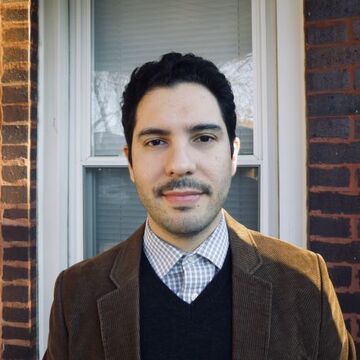| Wksp: Stanzas & Paragraphs |
Writing |
2040 (001) |
Fall 2025 |
|
Description
In Stanzas in Meditation, Gertrude Stein writes, ¿I call carelessly that the door is open / Which if they can refuse to open / No one can rush to close.¿ Playing on the Latin root of stanza as a standing space or room, Stein writes her stanzas as rooms, spaces, and boundary zones that are equally porous and enclosed. Is the stanza a coordination of limits and encasements, or is it a liminal space of experimentation and transgression? Does the stanza bear a similar relation to the body of a poem as a paragraph does to the flow of a narrative or argument? In this course, we will be writing, workshopping, and thinking in and through the stanza as a unit of form and function within poetic composition and lyric prose. We¿ll also engage with prose poetry and lyric prose in which the paragraph functions as a destabilizing or deterritorializing event in narrative form. We¿ll read classic and contemporary theories about the stanza, as well as read across various stanzaic forms, ranging from classical standards drawn from Sappho, Spenser, and Swinburne, as well contemporary experiments in the stanza and the prose poem by poets like Lyn Hejinian, Jericho Brown, Juan Felipe Herrera, Anne Waldman, and Nathaniel Mackey. Course work will consist of weekly creative writing assignments, revision exercises, in-class review sessions, a brief two-page research statement, and a final portfolio of work.
|
Class Number
1896
Credits
3
|
| Adv Wksp: Writing Landscape |
Writing |
3140 (001) |
Spring 2025 |
|
Description
In this course, we will explore the history and nature of landscape in literature, but especially as a practice of description, catalogue, attention, and scale. With a specific attention to ekphrasis (the description or reproduction of a visual work in a literary format), we will practice 'decolonizing' landscape from its problematic entanglements with the enclosure movement and the history of colonialism, and seek out ways of redefining landscape within urban and bucolic environments, at once gaining a new understanding of what Donna Haraway called 'natureculture,' the entangled multispecies aspects of environment that thrive in hybridity and codependence. We will experiment with different forms of writing, incorporating, and deconstructing landscape within our writing and creative practices. Course work will vary but typically will include weekly reading assignments, short low-stakes writing assignments, 2 workshop slots, and a final creative project that engages with the course topic.
|
Class Number
1836
Credits
3
|
| Sem: Translation and Alterity |
Writing |
5500 (003) |
Spring 2025 |
|
Description
In this course, we will think across the different disciplinary modes of translation: between languages, between aesthetic mediums, and between forms of thought. It is not required nor essential that students be multilingual, but we will play with the act of translation as a form of re-creation, whether as a 'sacralization' or 'desecration' of aesthetic and textual signification. In thinking through translation, we will also approach and think through alterity ('otherness') as a contrapuntal force that allows for creative rhythms to occur and resonate between difference and repetition. We will read broadly (from John Dryden to Anne Carson) and experiment with the different approaches and theories that have defined translation over the years, especially in writing and literature, and we'll work on translating other works into the language of our own medium. Course work will vary but typically will include weekly reading assignments, short low-stakes writing assignments, a research-oriented group project, and a final creative project that engages with the course topic.
|
Class Number
2036
Credits
3
|
| Sem: Surface Tensions |
Writing |
5500 (003) |
Fall 2025 |
|
Description
A seminar in which we'll be thinking about surface-depth and foreground-background relations in our writing practices; also, we'll read across material poetries, book-objects, and visual poetry. As a supplement, we'll also engage in a history of close reading practices that moves from close-reading, to distant-reading, to surface-reading, each of which covers a specific methodology of reading and critical thinking (so, the New Critics to Helen Vendler, to Franco Moretti, to Best and Marcus), while also providing a way of reading/revising one's own work in a critical mode.
|
Class Number
2124
Credits
3
|
| Grad Projects:Writing |
Writing |
6009 (007) |
Fall 2025 |
|
Description
Taken every semester, the Graduate Projects courses allow students to focus in private sessions on the development of their work. Students register for 6 hours of Graduate Project credit in each semester of study.
|
Class Number
2366
Credits
3 - 6
|
| Graduate Projects: Writing |
Masters in Fine Arts |
6009 (152) |
Spring 2025 |
|
Description
Taken every semester, the Graduate Projects courses allow students to focus in private sessions on the development of their work. Students register for 6 hours of Graduate Project credit in each semester of study.
|
Class Number
1993
Credits
3 - 6
|

